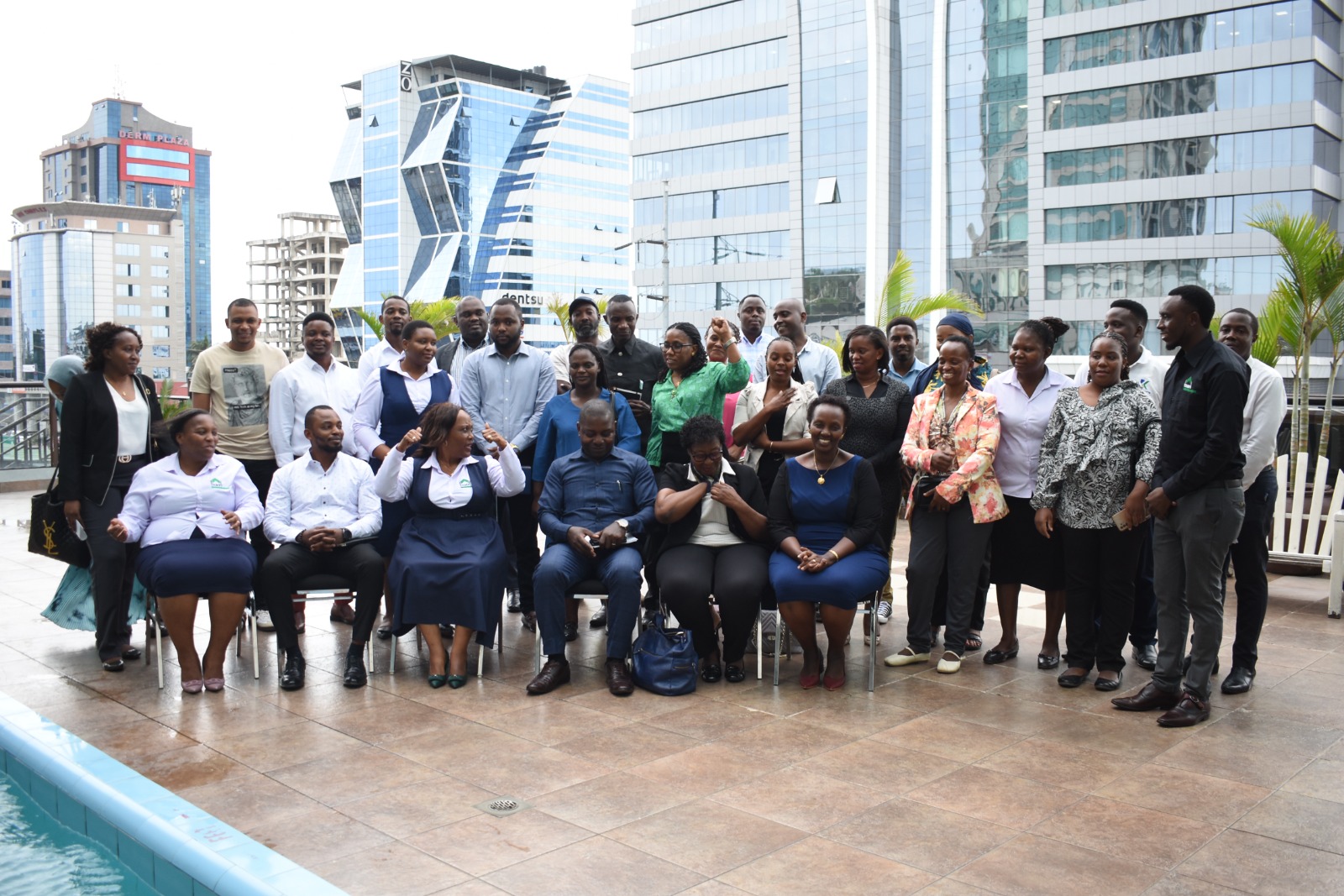
DAR ES SALAAM: The Tanzania Association of Microfinance Institutions (TAMFI) held a significant advocacy meeting with various stakeholders in Dar es Salaam on October 4, 2024. The meeting, hosted at Seashells Millennium Hotel in Makumbusho, discussed the development of the microfinance sector and assessed its contribution to the national economy. Additionally, it focused on strategies to enhance the efficiency and public perception of microfinance services in the country.
In her opening remarks, TAMFI’s Chairperson, Devotha Minzi, emphasized the critical role played by microfinance institutions in providing credit to underserved populations not typically reached by larger financial institutions, including banks. She highlighted that the growing volume of loans issued by TAMFI member institutions clearly indicates the high demand for credit in Tanzania. Microfinance institutions often lend to economically vulnerable clients who lack the collateral and qualifications larger financial institutions require.
“This sector remains vital in expanding financial inclusion, especially through loans to support productivity and entrepreneurship. Microfinance institutions are crucial in empowering individuals and businesses that are otherwise excluded from formal financial systems,” Minzi said.
However, she acknowledged that while many TAMFI members followed best lending practices, the meeting also needed to address complaints raised by some clients. These complaints include high interest rates and non-compliance with proper lending procedures. Minzi stressed the importance of reviewing these issues to enhance service delivery and build a better reputation for the microfinance sector.
“Alongside evaluating the positive contributions of the microfinance sector to the broader economy and increasing financial inclusion, we must assess areas where improvements are needed. Enhancing our services will allow us to foster stronger relationships with our clients and establish a positive public image,” she added.
Improving Sector Standards and Addressing Complaints
One of the key items on the agenda was the introduction of TAMFI’s Code of Conduct. The aim of this initiative is to differentiate TAMFI members from other lenders by upholding superior ethical standards in their operations. The members were encouraged to provide suggestions on how TAMFI could further support the development of a sustainable microfinance industry.
The meeting also addressed the importance of compliance with the Bank of Tanzania (BoT) regulations to ensure that all microfinance institutions operate transparently and accountably. Minzi reiterated TAMFI’s commitment to educating both service providers and their clients to foster an environment that promotes the sustainable growth of the microfinance sector and contributes significantly to the nation’s financial development.
Several participants had the opportunity to share their thoughts on creating a more conducive environment for microfinance services and identifying solutions to the challenges facing lenders and borrowers.
“We often receive criticism, with some referring to us as ‘bloodsuckers’ and other derogatory terms. These criticisms tend to focus on the borrowers’ perspective without considering the challenges faced by lenders. As service providers, we strive to offer sustainable services that do not harm our clients,” Minzi explained. She also noted that many of those who criticize microfinance institutions are defaulters who, for various reasons, fail to repay their loans or abscond without notice.
“Our goal is to provide loans that positively impact our clients, not burden them unnecessarily. As we have heard from several testimonials, many of our clients have benefited greatly from the loans they have received, some borrowing multiple times and achieving significant economic success,” she continued.
Opportunities and Challenges in the Microfinance Sector
Winnie Terry, the Executive Director of TAMFI, emphasized that while the microfinance sector holds tremendous potential, it continues to face several challenges. She pointed out that microfinance institutions play a vital role in the nation’s development by providing much-needed services to many Tanzanians who do not have easy access to financial services through formal banking systems.
Terry highlighted TAMFI’s ongoing efforts to promote transparency and efficiency in the microfinance sector, calling on all stakeholders to continue collaborating and adhering to ethical standards to improve the industry as a whole and create positive social and economic change.
“We have put strategies in place to address these challenges and ensure that clients receive high-quality services. We are also focusing on upholding work ethics and ensuring that our members follow the agreed-upon code of conduct,” Terry explained.
TAMFI (Tanzania Association of Microfinance Institutions) is a unifying body that brings together institutions offering loans, savings, and various financial services to underserved individuals and small businesses.Its main objectives are to increase access to financial services, improve the efficiency of these services, and protect the interests of clients. Founded in 2011, the federation has continued to be a pillar of growth for the microfinance sector in Tanzania.
Terry also called on other stakeholders to join TAMFI so they could participate in discussions and contribute to the sector’s growth.
Collaborating for a Better Future
Roymez Kway, an accountant at BK Finance Limited, expressed that attending the meeting was a valuable opportunity as it provided guidance on strengthening cooperation and building a unified image for microfinance service providers, thereby improving the quality of services offered to clients.
The workshop concluded with a firm commitment from microfinance service providers to work closely together to tackle the sector’s challenges. Participants emphasized the importance of genuine collaboration between all stakeholders, including service providers, borrowers, and the government, to ensure that the services offered meet clients’ needs and contribute to the overall growth of the national economy.
Representatives from various key institutions involved in microfinance and financial services attended the event. Participants included communication officers, finance officers, CEOs, directors, and managers from organizations such as BRAC Tanzania Finance, SELF Microfinance, Endeleza Credit, and others. Their participation demonstrated a strong commitment to continuing the dialogue on the current state of the microfinance sector in Tanzania and finding solutions to the challenges facing both service providers and borrowers.
The workshop provided a platform for sharing experiences, addressing industry issues, and exploring strategies to improve access to and the impact of financial services on underserved communities.


Evaluating the positive contributions of the microfinance sector to the broader economy and assess areas where improvements are needed, will not only allow us to foster stronger relationships with our clients but also understand the current asset and outreach of microfinance in Tanzania.
Most of microfinance are in Town and sub-urban areas where most of their borrowers are rental bill clients, we need to work very hard to change the mind of microfinance investors so that they can enjoy their investments and see microfinance industry as a social and financial investment.